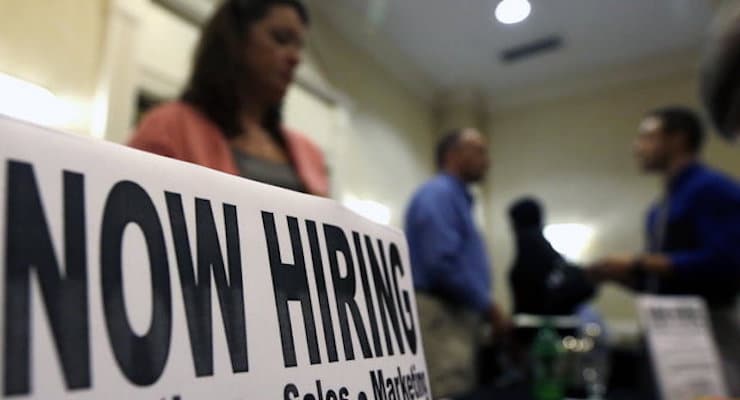

Movements such as Ban the Box are helping ex-convicts find jobs upon their release from prison. (Photo: AP)
Just got out of jail? Odds are that within five years, you’ll get caught doing something illegal and go back to jail. This is bad for ex-cons, their victims, their families and America.
Some of these people, of course, are career criminals who ought to stay in jail. But most are people who deserve another chance. They are more likely to stay straight if they find work. Work gives people purpose. It fills the idle hours that get many people into trouble.
But America makes it extra hard for ex-cons to find work. Some states make it illegal.
Illinois bans ex-convicts from more than 118 professions.
I understand why people might not want ex-cons to be bank security guards or cops, but in many states (Illinois isn’t unusual) the list of forbidden jobs goes way beyond that.
The Illinois Policy Institute, a free-market group that tries to get these laws tossed out, reports that ex-cons must give up on trying to become a nurse, architect, interior designer, dancehall operator, teacher, dietician, acupuncturist, cosmetologist, buyer of slaughtered livestock, geologist, etc.
Why? Who cares if a livestock buyer or geologist once served time? If employers want to hire him, why tell them, “No”?
When Lisa Creason was 19, she tried to steal from a cash register at a Subway sandwich shop. She says she only stole because she needed food for her baby. Creason was caught and arrested, and she served a year in jail.
Twenty years later, Creason graduated from nursing school. But when she went to take the test that would allow her to get a nursing license, she learned that because she was once convicted of a “forcible felony,” her career path was impossible.
She said it felt as if the bureaucrats had told her: “I was meant to be in the ‘hood, meant to be on government assistance.”
This is not a good message.
“Lisa is a great example of someone who has changed her life,” said the Institute’s Kristina Rasmussen this week. “She is reformed. She wants to be a productive member of society.” It has been 20 years since Lisa committed her crime, “but government gets in the way of her pursuing her profession.”
The good news is “this year we got a bill passed and it will go to the governor. So there is hope for Lisa Creason.”
It’s hard to get rid of bad laws. It happens one reform at a time.
No one says that crimes these convicts committed don’t matter, but punishing them forever doesn’t help. Rasmussen said, “You went to jail, you paid your debt to society. Coming out, how are we going to treat you? Are we going to deny you work that keeps you and your family out of trouble … deny you that opportunity, and you turn either to a life of crime again or dependency?”
Why do states have so many restrictions? “There are two forces at work,” said Rasmussen. “One, government bureaucrats like being busybodies, deciding who gets to do what.” They think that makes the world safer.
But there’s another factor. “You have people who don’t welcome competition,” said Rasmussen. Existing businesses and unions don’t like newcomers on their turf. “Who’s easier to kick out of the pool of potential competitors than people just emerging out of the criminal justice system?”
Existing businesses — the insiders — fund politicians who pass rules that make it hard for newcomers to compete with them. The politicians convince themselves that their rules protect customers. But mostly, their rules protect the insiders.
But some competing businesses want to hire ex-cons, and when that works out, it’s good for the businesses, their customers and the ex-cons. A Chicago suburb diner called Felony Franks hires only ex-felons, its policy being “that once a person has paid their debt to society after being convicted of a crime, that he or she should have the same rights and opportunities as others.”
Of course, some ex-cons can be trusted while others cannot. But it’s important to let employers and customers make those calls — not a controlling, insider-protecting one-size-fits-all government.
[mybooktable book=”no-cant-government-fails-individuals-succeed” display=”summary” buybutton_shadowbox=”true”]





